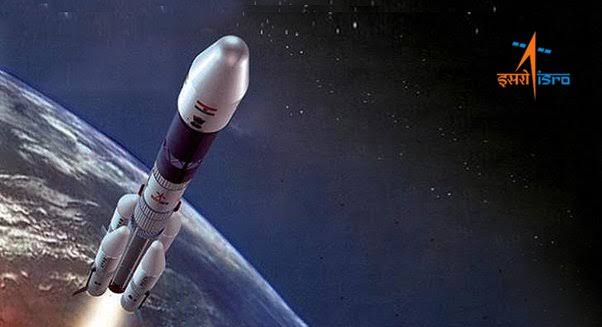Japan’s space ambitions grind to a halt, should ask ISRO for help

With the latest H3 launch failure of Japan, suddenly the future of Japan’s space program looks bleak. It has been not only a major shock but will lead to considerable delays in satellites launches. Though it should not mean the end of Japan’s space program.
Japan’s space program has come to a standstill with Last month’s failed launch of the H3 next-generation rocket is the hardest setback to hit the program. The H-IIA, Japan’s mainstay rocket to date, uses the same systems as the H3’s failed second engine.
Therefore the Japan Aerospace Exploration Agency has suspended H-IIA launches for further checking and investigation. Epsilon, a smaller rocket, also experienced a launch failure last October. As a result of these troubles, Japan is completely without means to launch satellites for the time being.
The H3 has already undergone two years of delays. So satellites launch programme made previously had to be halted. The Advanced Land Observing Satellite 3, which was due to replace the first ALOS that went out of service in 2011, was lost in the explosion of the H3.
ALOS-4 and various intelligence satellites will not be launched on schedule now either. The Martian Moons Exploration mission to bring back samples from Phobos may miss its narrow launch window next year given the rocket troubles.
The civilian space exploration of Japan is entering a new phase. Japan is participating in the U.S.-led Artemis program with the aim of landing a Japanese astronaut on Earth’s moon. The private company ispace, which is participating in the Artemis program, has already launched its own private lunar lander, currently flying in lunar orbit.
Japan’s budget for space development reached 500 billion yen ($3.76 billion) in the fiscal year ended in March, up from about 300 billion yen previously. The figure will rise this year to 600 billion yen.
So a sane advice to Japan will be to strive for closer ties with ISRO for civilian and scientific programmes and thus get out of the quicksand.
Even the new National Security Strategy, National Defence Strategy and Defence Buildup Plan, of Japan, adopted together last December, contain provisions on strengthening space infrastructure and security capabilities. All of these are now in limbo.
Earlier a Diet resolution made in 1969 had virtually shackled the Ministry of Defence and the Japan Self-Defense Forces from developing or operating space systems. This constraint was finally relaxed with the passage of the Basic Space Law in 2008, allowing use of space for national and international security.
Nevertheless, until recently, Japan had made only slow efforts to use space for security purposes, with its endeavours mostly limited to strengthening space situational awareness capabilities.
However, as the new National Security Strategy stipulates the development of counterstrike capability, it is necessary for Japan to acquire better targeting capabilities. Further, the National Defence Strategy specifies that Japan’s targeting systems should utilize a constellation of surveillance satellites.
The document also says that Japan, together with allies and like-minded countries, should develop a satellite constellation to detect the launch of hypersonic glide vehicles and track their movement.
This will require a large-scale array of satellites, partly to secure real-time information transmission to communications satellites. In addition, the National Security Strategy mandates that Japan should deploy new satellites for space domain awareness to monitor the movement of other countries’ satellites.
In addition to this rapid increase in the space budget, the administration of Prime Minister Fumio Kishida has committed to increasing defence spending to 2% of gross domestic product within five years, a move that will bring the budget for space security to 1 trillion yen over the period.
The ruling Liberal Democratic Party has called for the creation of a National Space Council and the establishment of a ministerial-level space agency to promote a unified approach to space policy. Currently, responsibility is divided among the Cabinet Office, the Ministry of Education, Culture, Sports, Science and Technology and the Ministry of Internal Affairs and Communications. The LDP has also recommended strengthening the existing Space Policy Committee and the formulation of a technology development strategy.
The creation of a Ministry for Space would provide stronger authority to consolidate policymaking now taking place in various agencies. A space minister would be able to take leadership not only in the government but also with industry, especially with regard to the development of launch vehicles.
It is quite clear that for Japan’s space program to enter a new phase, H3 defects nest get rectified fast otherwise all plans and programs will be little more than words on paper.
Japan’s space program is extremely ambitious. It is poised to leap to a new stage and to take fresh direction in both its security and civilian aspects. Japan has no choice but to bring the next H3 launch to success.




